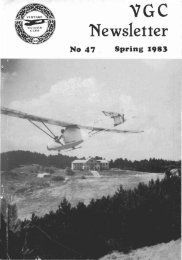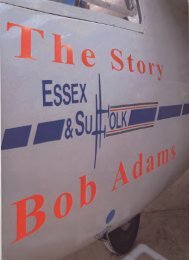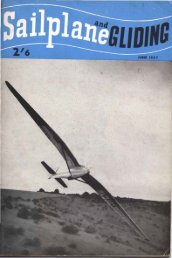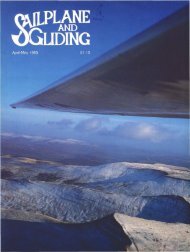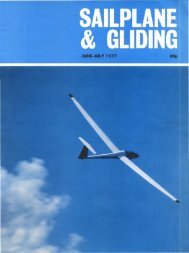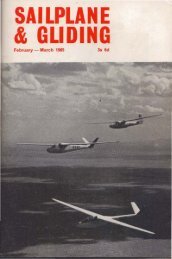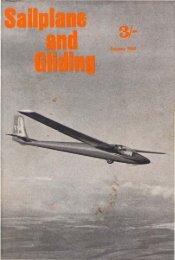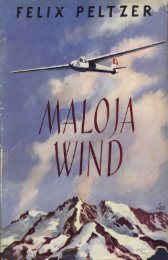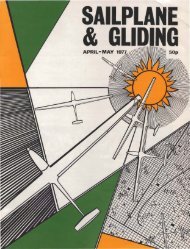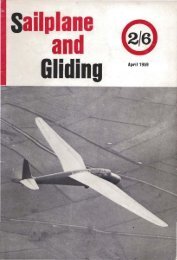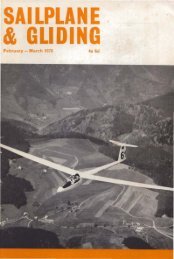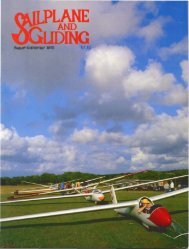COMBAT AND COMPETITION.pdf - Lakes Gliding Club
COMBAT AND COMPETITION.pdf - Lakes Gliding Club
COMBAT AND COMPETITION.pdf - Lakes Gliding Club
You also want an ePaper? Increase the reach of your titles
YUMPU automatically turns print PDFs into web optimized ePapers that Google loves.
<strong>COMBAT</strong> <strong>AND</strong> <strong>COMPETITION</strong><br />
confronted by Pinkie, who had been told to deal with him, he<br />
announced that he was a qualified pilot on FW 190s - and he wanted<br />
to fly a Typhoon! The sheer effrontery. But he was an aviator and an<br />
enthusiast - and Pinkie likewise. Only it wasn't Pinkie's decision, even<br />
if his comment said it all:<br />
"If we ever did agree - I would escort you. My cannons would be<br />
loaded. The slightest sign of any nonsense and I would shoot you<br />
down!"<br />
In the end he worked at Wunsdorf as a labourer. His world was<br />
aviation and he could not bring himself to give it up. Besides which he<br />
needed a meal ticket.<br />
To invite him in, to sit and talk amongst us, was forbidden during<br />
the period of no fraternisation which existed immediately after the<br />
war. But Johnny Baldwin looked at it from a different angle. It was an<br />
opportunity not to be missed. To get an enemy view on our operations<br />
and tactics at first hand. While memories were still fresh.<br />
The results were instructive. The German pilot had a fixation<br />
about our failure, in his opinion, to operate in much larger formations.<br />
The fact that they might have been forced into this themselves - once<br />
the Luftwaffe had lost overall air superiority - was something that had<br />
not occurred to him. And he seemed unwilling to accept the idea that<br />
large formations were essentially inflexible.<br />
Against ground targets there was no disagreement. Speed and<br />
surprise were the name of the game. Attacks which were pressed<br />
home, before the enemy had time to take cover or retaliate, were the<br />
most effective and suffered the lowest casualties. Our Luftwaffe major<br />
had seen it again and again. As he had also seen the opposite.<br />
They had thought our ground troops arrogant in their neglect of<br />
camouflage. The anti-aircraft fire generally ineffective - and believed<br />
that the Luftwaffe could have caused enormous damage, given more<br />
fuel and better trained replacements. As for the Typhoons, in the<br />
ground attack role they were greatly feared by the Wehrmacht, but the<br />
Luftwaffe considered that we were often easy to bounce. However, as<br />
soon as they mixed it with us, the less experienced German pilots were<br />
usually outclassed.<br />
In the final stages of the war this had become a vicious circle with<br />
high pilot attrition rates and replacements, who had done their primary<br />
training on gliders, frequently going on ops with no more than 100<br />
hours of power flying. As for the information from RAE 7 that the FW<br />
190 could outclimb a Typhoon. It may have happened on 130 octane<br />
112



